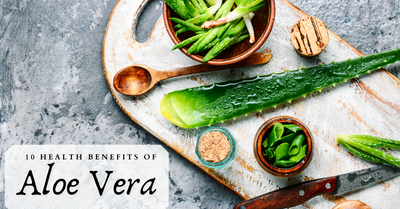Relieve Constipation Naturally and Safely With Aloe Vera Gel

Aloe vera is a popular household plant that does more than adding a little bit of greenery to your home. Believe it or not, the plant can be used both topically and orally for a variety of different health reasons. One such use is for constipation.
But before you start eating your Aloe houseplant, here’s what you need to know about using Aloe vera for natural constipation relief.
Aloe Vera Uses:
First and foremost, what is Aloe vera used for? While you can’t use Aloe vera for just about anything, the plant does have an impressive list of potential benefits, including:
- Skin hydration
- Acne relief and prevention
- Constipation relief
- Sunburn and wound treatment
- Natural anti-inflammatory
- Heartburn relief, and more
How Aloe Vera Works as a Laxative
As for Aloe vera’s use in helping you go, the plant contains a thick, yellow substance called latex in between the gel and the inner part of the plant leaf. Inside the latex is a chemical called aloin, which is a stimulant laxative that gives Aloe its constipation-relieving property.
Benefits of Using Aloe Vera Juice for Constipation
- It relieves constipation: An obvious benefit is Aloe’s ability to relieve constipation. One study shows that one of Aloe vera’s most notable oral uses is as a laxative.
- It acts as an anti-inflammatory: While Aloe vera is helping you go, it also acts as an anti-inflammatory, potentially relieving inflammation as it works its magic.
Aloe Vera To Heal & Prevent Inflammatory Bowel Disease
Inflammatory bowel disease (IBD) is a chronic disease that affects the gastrointestinal mucosa. IBD consists of 2 major diseases, namely, Crohn's disease and ulcerative colitis.
In this study on the protective and therapeutic effects of aloe vera gel on ulcerative colitis, scientists concluded that "the anti-inflammatory, antioxidant and wound healing properties of AV gel, this herbal medicine could be used to improve the symptoms of UC as well as to prevent the disease in people who are prone to this infection."
Aloe Vera Is Effective And Safe In Short-Term Treatment Of Irritable Bowel Syndrome (IBS)
Another study published with the National Center for Biotechnology Information on the National Institute of Health's website shows that aloe vera is effective and safe in short-term treatment of irritable bowel syndrome. "The meta-analysis showed a significant difference for patients with aloe vera compared to those with placebo." The study also found "No significant difference in a number of adverse events between the AV and placebo groups was reported in the studies. The follow-up duration ranged from 1 to 5 months."
How to Use Aloe Vera as a Laxative

1. Aloe Vera Juice vs Aloe Vera Capsules vs Aloe Vera Powder
Aloe vera comes in many forms, but three such forms are more popular for oral Aloe vera use: Aloe vera juice, Aloe vera capsules, and Aloe vera powder. Let’s look at how each of these forms compares:
Aloe Vera Juice
Aloe vera juice is the most popular and beneficial way to eat Aloe vera. The juice is made from either crushing or pulverizing the whole leaf. The latex portion of the plant is then removed by stripping it from the plant.
PROS:- You can control how much you consume with ease
- It’s easy to add to any meal or drink
- You have to drink it, which may be a problem if you dislike the taste
Aloe Vera Capsules
Aloe vera capsules are made by freeze-drying the entire leaf, crushing it into capsule form, and then removing the latex. Capsules tend to be more concentrated than Aloe vera juice.
PROS:- You don’t have to mix it with food or drink
- It’s easy to take on the go
- You can consume a higher dosage
- You can accidentally take too much due to its higher concentration
Aloe Vera Powder
Aloe vera powder is made from aloe vera gel. The gel is rinsed, drained, and then dehydrated. Once it’s dry, it is ground into a powder rather than put into a capsule.
PROS:- It’s also easy to take Aloe vera powder with you on the go
- Customize your dosages as needed
- Easily mix into your food
- It can be messy
- You have to mix it into a meal or drink
2. Dosage for Aloe Vera Laxative
According to WebMD, the correct dosage for constipation relief is 100 to 200 mg of Aloe vera juice daily or 15 mL of the gel. While you can take more, especially in capsule form, here’s where it gets serious.
Aloe vera latex may pose a health risk if you consume too much. Studies show that taking one gram of aloe latex per day long-term can be fatal, as it may cause kidney and liver failure.
However, most aloe vera products on the shelves these days do not contain latex, and the ones that do only contain trace amounts. So always choose regulated aloe vera gel products when you opt for the plant as a natural laxative, as they are safer to consume.
3. Don’t DIY Your Aloe Vera for Constipation Relief
Before you chop off some of that Aloe houseplant in your windowsill, you might want to think twice about DIYing Aloe vera for constipation. Your Aloe vera plant contains higher concentrations of latex than a commercial product that has been stripped of the ingredient.
Instead, opt for an organic, 100% pure Aloe vera juice, powder, or capsule. Store-bought Aloe vera is measured to ensure that there is a consistent—and low—concentration of the plant’s laxatives.
4. Make an Aloe Vera Juice Smoothie

Who doesn’t love smoothies? When it comes to consuming Aloe vera, tossing it in a smoothie is one sure-fire way to cancel out the bitter flavor of Aloe vera while also getting the benefits of its constipation-relieving properties.
5. Add Aloe Vera to Your Favorite Drink
Whether you choose Aloe vera juice or the powder form, another popular way of consuming Aloe vera is by adding it to beverages. Doing this makes for an easy drink on the go. And, just like with the smoothie, the best way to get rid of the bitter flavor of Aloe vera is by mixing it up. Try mixing the Aloe with orange juice or coconut water to cancel out the taste (unless, of course, you like the taste of Aloe vera!)
6. Put Aloe Vera in Your Food
If you don’t like the taste of Aloe vera but want the perks of consuming the plant, one way you can have your cake and eat it is by sneaking it into your food on the sly to hide the flavor. Simply sprinkle some Aloe vera powder onto your food after cooking it to help with constipation.
It’s worth mentioning that research shows that high temperatures will decrease some of the beneficial properties, so don’t heat Aloe vera above 150F for more than 15 minutes if you want to get the most out of your laxative.
7. Stay Hydrated When Using Aloe Vera
Just as you would with caffeine or other known laxatives, you’ll want to stay hydrated when you use Aloe vera for constipation relief. Drink plenty of water before and after you consume Aloe vera to help the product work.

8. Be Mindful of Aloe Vera Warnings and Precautions
As with any medicine, Aloe vera comes with potential risks. Talk to your doctor before you use Aloe vera for constipation, and keep in mind the following:
- Avoid Aloe vera products containing unprocessed latex, as it can cause kidney damage or even lead to cancer
- Don’t take more than the recommended dose, and start small, working your way up to a safe dose.
- Avoid taking Aloe vera if you have cardiac, kidney, or liver problems.
- Talk to your doctor before using aloe vera as a laxative if you’re pregnant.
- If you’re allergic to garlic or onions, you may be allergic to Aloe vera and should avoid using products with this ingredient.
- Certain prescription drugs may interact with Aloe vera, so avoid using Aloe vera as a natural remedy if you take anticoagulants, diabetes drugs, and stimulant laxatives to name a few.
9. Watch for Side Effects from Aloe Vera Use
While Aloe vera is considered to be safe to use, you should still be on the lookout for any potential side effects. Contact your doctor if you have any of the following symptoms:
- Extreme stomach pain or diarrhea
- Muscle cramps or paralysis
- An abnormal heartbeat
- Jaundice
- Dark urine
- Increased bruising
- Bloody stool
- Continued and painful constipation
If Aloe vera hasn’t helped you go after a week, stop using it to treat your constipation and speak with your doctor to figure out a new plan.
Conclusion
Aloe vera gel has been used to treat constipation and other bowel related problems for thousands of years. Studies have shown that aloe vera gel has been determined to be safe and effective for short term use. We recommend a whole food, plant-based diet with lots of fresh fibrous fruits and vegetables to maintain the regularity of your bowels. Aloe vera can be a supplement taken regularly to reduce inflammation, prevent infection as well as provide vitamins, minerals, fatty acids, enzymes, and antioxidants.
Sources:
https://www.wikihow.com/Use-Aloe-Vera-to-Treat-Constipation
https://www.medicalnewstoday.com/articles/benefits-of-aloe-vera-juice#_noHeaderPrefixedContent
https://www.sciencedirect.com/topics/immunology-and-microbiology/aloe-vera
https://medium.com/@sarvliving/health-benefits-and-risk-of-drinking-aloe-vera-juice-da034e0a4510
https://www.mayoclinic.org/drugs-supplements-aloe/art-20362267
https://pubmed.ncbi.nlm.nih.gov/26742306/
https://www.healthline.com/health/digestive-health/aloe-vera-juice-acid-reflux#takeaway
https://www.ncbi.nlm.nih.gov/pmc/articles/PMC3551117/
https://pubmed.ncbi.nlm.nih.gov/19782820/
https://www.ncbi.nlm.nih.gov/pmc/articles/PMC6349368/
https://www.webmd.com/diet/supplement-guide-aloe-vera#1
https://www.verywellhealth.com/aloe-vera-what-should-i-know-about-it-89401
https://www.naturalhealers.com/blog/aloe-vera-ultimate-guide/
https://www.ampfloracel.com/blog/aloe-vera-as-natural-stool-softener/
https://www.globosurfer.com/alo-vera-for-constipation/
https://deepgreenpermaculture.com/tag/how-to-remove-latex-from-aloe-vera-leaves/








Leave a comment